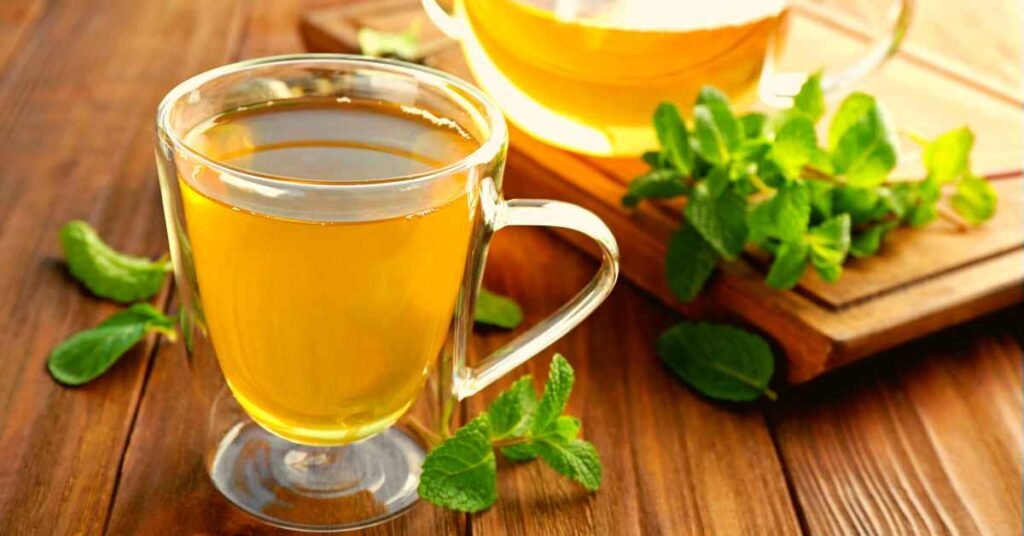Constipation is a common concern among toddlers, often leading parents to explore gentle and natural remedies to alleviate their little ones’ discomfort.
While dietary adjustments and increased water intake are crucial components of managing constipation in toddlers, the inclusion of certain herbal teas can offer additional relief.
In this article, we will delve into the world of tea, examining its potential benefits and considerations when addressing constipation in toddlers.
Understanding Constipation in Toddlers

Constipation in toddlers is a prevalent issue, marked by infrequent bowel movements, hard stools, and discomfort during bowel movements.
Several factors contribute to constipation in this age group, including diet, insufficient water intake, lack of physical activity, and emotional factors.
It’s essential for parents to be attuned to their toddler’s bowel habits and seek solutions that are both effective and gentle.
The Role of Hydration and Diet
Before exploring the benefits of tea, it’s crucial to emphasize the role of hydration and a balanced diet in preventing and managing constipation in toddlers.
Dehydration can exacerbate constipation, making it imperative for parents to ensure their toddlers consume an adequate amount of water throughout the day.
Additionally, a diet rich in fiber from fruits, vegetables, and whole grains promotes healthy bowel movements.
Introducing Tea as a Remedy
While water and a fiber-rich diet are fundamental in managing constipation, herbal teas can be a valuable addition to a toddler’s routine.

Certain herbal teas are known for their mild laxative effects and digestive benefits, providing a gentle way to ease constipation in toddlers.
However, it’s crucial to approach tea consumption with caution and choose varieties that are safe and appropriate for young children.
Safe Herbal Teas for Toddlers
Chamomile Tea: Chamomile tea is renowned for its calming and soothing properties.
It contains natural compounds that can help relax the muscles in the gastrointestinal tract, potentially easing constipation.
When offering chamomile tea to toddlers, it’s essential to use a mild brew and monitor for any allergic reactions.
Fennel Tea: Fennel tea has been traditionally used to alleviate digestive issues, including constipation.
It possesses anti-inflammatory properties and can help relax the digestive muscles, promoting smoother bowel movements.
However, parents should introduce fennel tea gradually to observe the toddler’s reaction.
Peppermint Tea: Peppermint tea is known for its ability to relieve digestive discomfort and promote bowel regularity.

It has a calming effect on the muscles of the gastrointestinal tract, potentially aiding in the passage of stools.
It’s important to dilute peppermint tea significantly before offering it to toddlers, as the menthol content may be too strong for their sensitive systems.
Ginger Tea: Ginger has anti-inflammatory properties and can help stimulate digestion.
Ginger tea, when offered in moderation, may contribute to relieving constipation in toddlers. It’s advisable to start with a weak ginger infusion to ensure the toddler tolerates it well.
Dandelion Tea: Dandelion tea is a gentle herbal option that has been used to promote digestive health.
It can have mild diuretic effects, potentially aiding in relieving constipation. As with any herbal tea, parents should introduce dandelion tea cautiously and monitor the toddler’s response.
Guidelines for Offering Tea to Toddlers
Consultation with Pediatrician: Before introducing any herbal teas to a toddler’s diet, it’s crucial to consult with their pediatrician.
A healthcare professional can provide personalized advice based on the toddler’s health and specific circumstances.
Age-Appropriate Introductions: Introduce herbal teas gradually and in age-appropriate dilutions.
Start with weaker infusions and observe how the toddler responds before considering stronger concentrations.

Limit Quantity: Moderation is key when offering herbal teas to toddlers.
Limit the quantity to small servings and avoid excessive consumption, as too much tea can have adverse effects.
Natural Sweeteners: If needed, natural sweeteners like a small amount of honey can be added to herbal teas. However, honey should not be given to children under the age of one due to the risk of botulism.
Observation for Allergic Reactions
Keep a close eye on the toddler for any signs of allergic reactions or adverse effects after introducing herbal teas. Discontinue use if any negative reactions occur.
Final Word
Tea, when chosen and introduced thoughtfully, can be a gentle and natural remedy for constipation in toddlers.
However, it’s crucial for parents to prioritize hydration, a balanced diet, and consult with a pediatrician before incorporating herbal teas into their child’s routine.
With proper guidance, the inclusion of safe and age-appropriate herbal teas may provide soothing relief for toddlers experiencing constipation, offering a comforting solution to parents navigating this common childhood concern.
MEDICAL DISCLAIMER
Itsnevernotteatime.com cannot and does not contain medical/health advice. The medical/health information is provided for general and educational purposes only and is not a substitute for professional advice.




